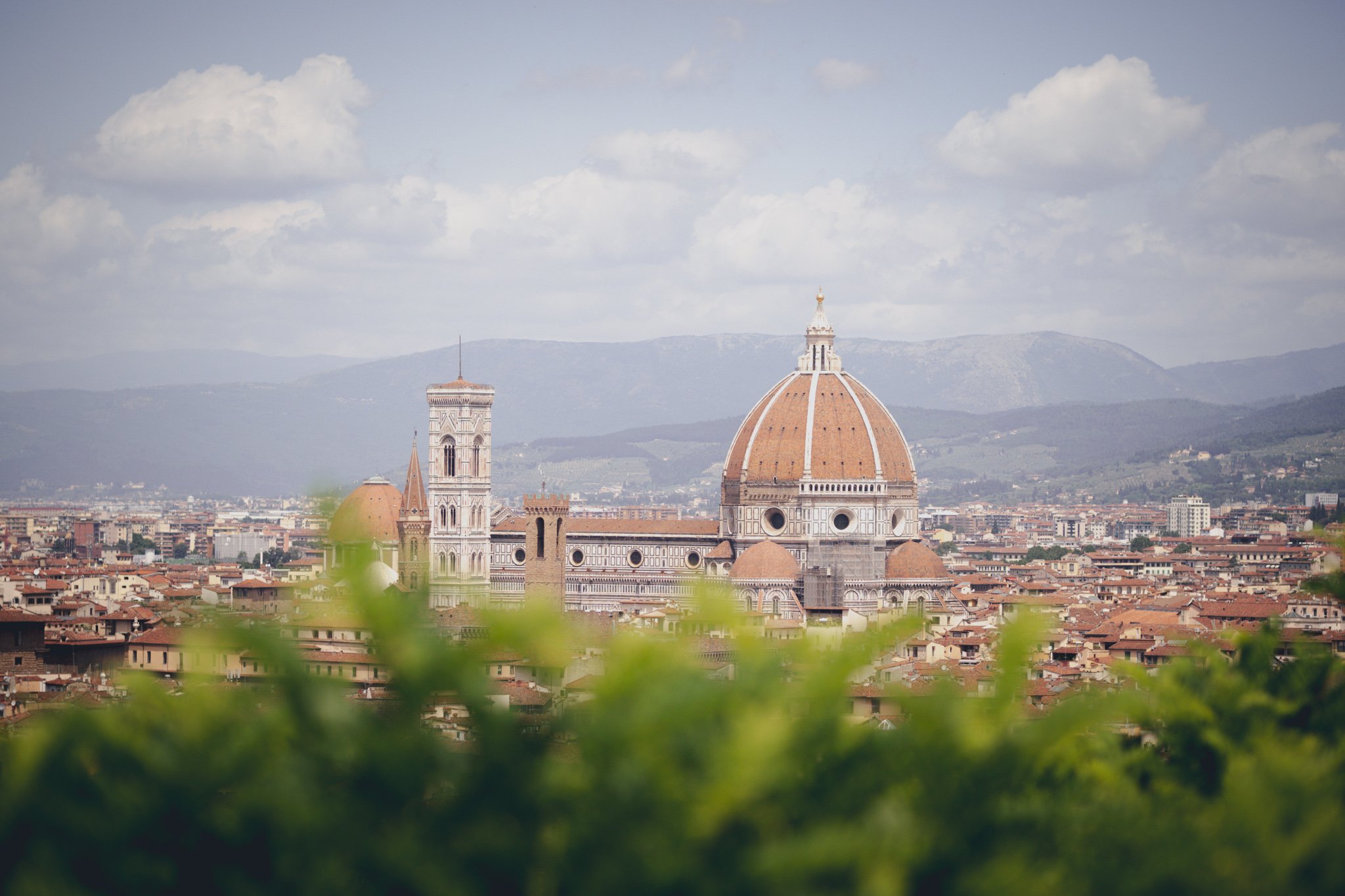A Renaissance City
Firenze | Florence from Piazzale Michelangelo
May 31 2022
Florence, on the last day of spring, was bathed in sunlight and the too-loud voices of tourists. Awe is often accompanied by silence, but here it seemed to be loud: the inspiring art and architecture of the renaissance sending visitors into rapture, attempting to explain what they saw to one another, asking questions in the hope someone might answer, or simply exclaiming at the overwhelming beauty of it all.
It was only on the outskirts of the museum-heavy centro storico that we stumbled across gardens, chapels and lanes with more citizens than visitors: bicycling commuters, weekday shoppers, methodical artisans with doors flung open to the street. Here, the city started to come alive for us, the present day feeling once again real and inhabited.
Florence as we know it, with all its sculptures, friezes and palazzo, was designed to inspire awe and promote beauty. But during the renaissance, it wasn’t just the existence of beauty, but our ability to create it that was perhaps most coveted. Artists and architects were central to this city as people and personalities, their place at the table as carefully guarded as their sculptures in the halls, their entries into competitions for public works as openly contested as bigger battles of the time. Renaissance Florence was full of lessons in how to live, how to be citizens of a city.
What would it mean for Florence - central, historic, renaissance Florence - to once again feel like a place of creation? To embody a spirit of progress, production and life - rather than resigning itself to being a mere monument to what already exists?
To look forward rather than only back?
Perhaps this isn’t possible, or even desirable. Perhaps the beauty is enough, and the awe should please rather than terrify me. But perhaps there’s also a way to be both, to respect the material and values of the past, to learn from the best parts, to build great cities for great citizens today and tomorrow - and to share all that with us, the visitors, the tourists.
